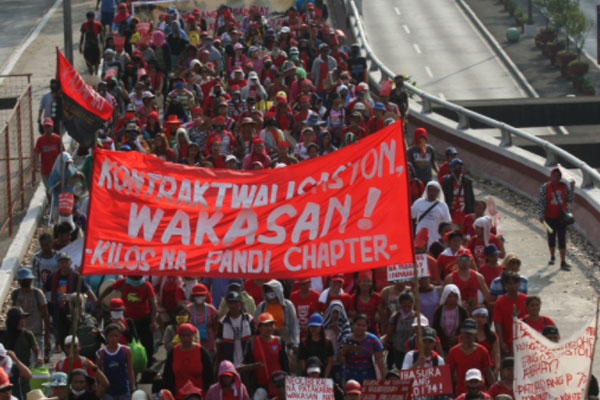
The 1st of May is commemorated in the Philippines as Labour Day, known globally as International Workers’ Day. It is a day to celebrate the sacrifice of workers and to be cognizant of the tribulations faced by working class families.
The day coincides with the anniversary of the infamous Haymarket Affair in Chicago which happened in 1886. On that historic day, thousands of blue-collar workers took to the streets to demand an eight-hour work day as opposed to the normal ten-hour day practiced beforehand. It was a significant occurrence since it was a rare act of blue-collar workers demonstrating their grievances, a sector of society that was traditionally marginalized and forgotten.
In the Philippines, the day is often viewed negatively by the wider public. Many see it as a day of protests, which could only mean traffic violations. Others see it as a day where “communist militants” surface from the underground and wreak havoc on society. What these naysayers fail to see is the deplorable plight of the working class in the country.
Despite the gains made by the labour movement over the years in many industrialized nations, Filipino labourers still suffer with low pay, unstable job tenures and unsafe work conditions. These flaws can be remedied with the force of the unions, but these groups who safeguard the rights of workers are no match for big-money interest groups that lobby the branches of government.
The reality today is that the fate of Filipino labourers severely lag that of their counterparts in the industrialized world. In terms of social security, security of tenure and minimum wage, the lives of our workers fall short of what can be considered a decent life.
This tells us that a lot more needs to be done in the fight for workers’ rights.
This year’s inception of Labour Day, trade unions are demanding for better job security by removing the unfair practice by corporations of contractualization. This is the act of hiring employees on contracts shorter than 6-months which then allows that employer to deny the employee of benefits mandated by law for regular workers.
President Rodrigo Duterte included the elimination of “contractualization”, known colloquially as “endo“, during his election campaign. Earlier this year, his Secretary for Labour Silvestre Bello III issued guidelines that would help “fight” endo but many union leaders claim that these new policies were not enough.
The President revealed this year that he had a “surprise” for the working class that he would reveal on Labour Day. For any worker soldiering on to make ends meet, they can only hope that this “surprise” is the death-knell of endo. Such policy reform will prove Duterte’s campaign promise, it will also cement his position as a genuine working-class president – the first in Philippine history.
Until that dream can be fully realized, the fight rages on for the working class. On Labour Day we must remember that the protests we see are the manifestations of the frustrations of the poor and marginalized of an unfair system that is rigged against them.
Let us not pin the blame on the victims, instead let us be cognizant of the injustice they suffer and join them in solidarity against the enemy.


One thought on “A Day for Workers’ Rights”
Comments are closed.